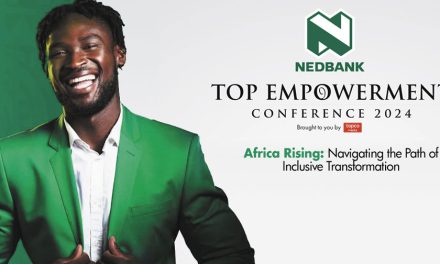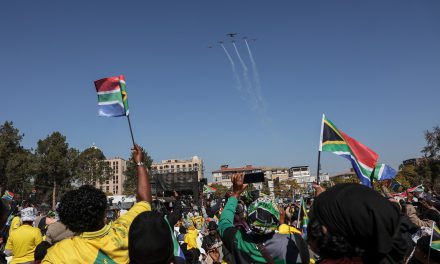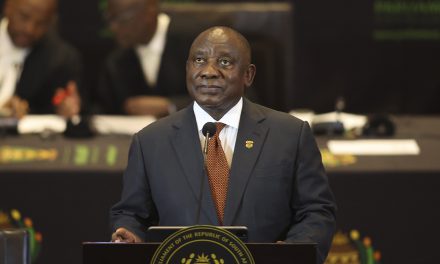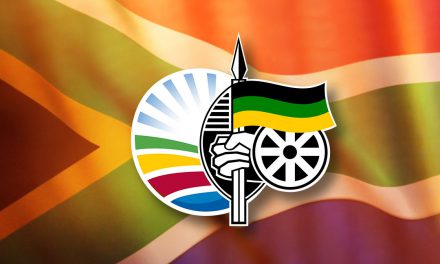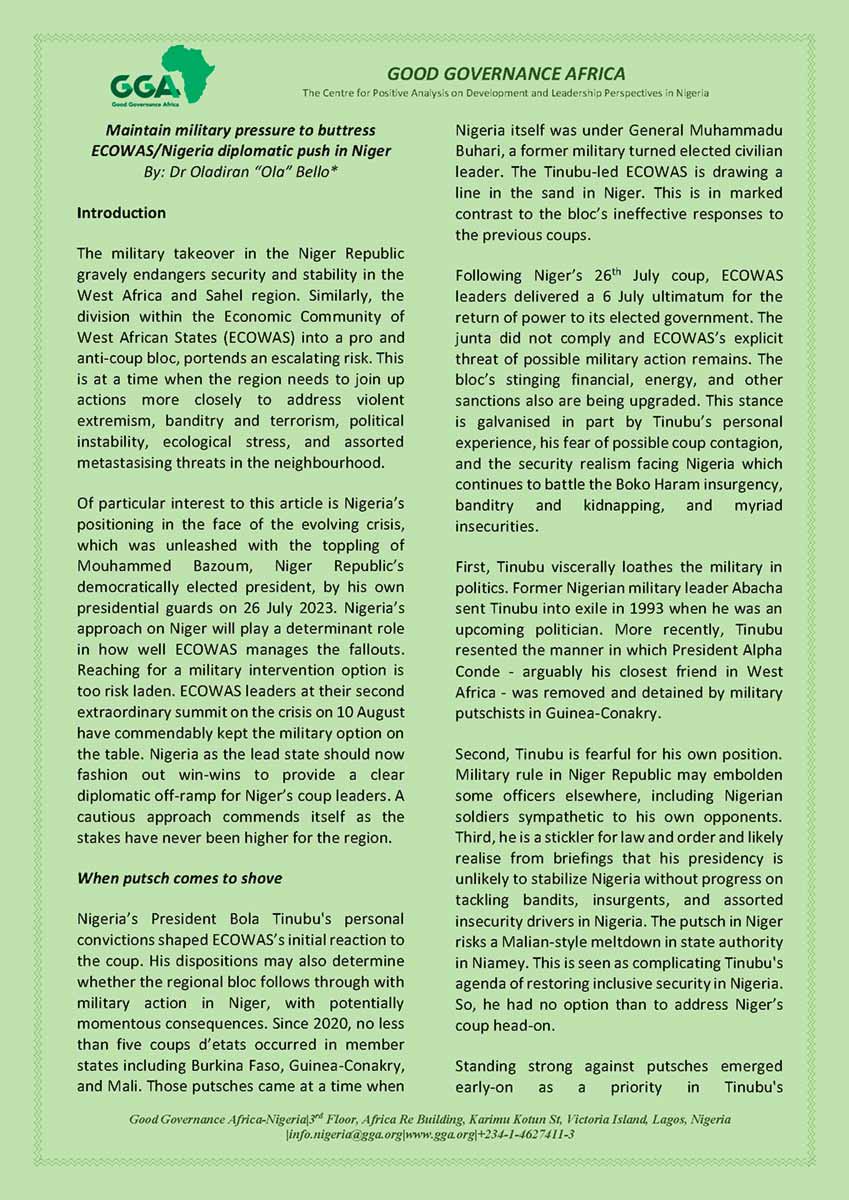
The military takeover in the Niger Republic gravely endangers security and stability in the West Africa and Sahel region. Similarly, the division within the Economic Community of West African States (ECOWAS) into a pro and anti-coup bloc, portends an escalating risk. This is at a time when the region needs to join up actions more closely to address violent extremism, banditry and terrorism, political instability, ecological stress, and assorted metastasising threats in the neighbourhood.
Of particular interest to this article is Nigeria’s positioning in the face of the evolving crisis, which was unleashed with the toppling of Mouhammed Bazoum, Niger Republic’s democratically elected president, by his own presidential guards on 26 July 2023. Nigeria’s approach on Niger will play a determinant role in how well ECOWAS manages the fallouts. Reaching for a military intervention option is too risk laden. ECOWAS leaders at their second extraordinary summit on the crisis on 10 August have commendably kept the military option on the table. Nigeria as the lead state should now fashion out win-wins to provide a clear diplomatic off-ramp for Niger’s coup leaders. A cautious approach commends itself as the stakes have never been higher for the region.
When putsch comes to shove
Nigeria’s President Bola Tinubu’s personal convictions shaped ECOWAS’s initial reaction to the coup. His dispositions may also determine whether the regional bloc follows through with military action in Niger, with potentially momentous consequences. Since 2020, no less than five coups d’etats occurred in member states including Burkina Faso, Guinea-Conakry, and Mali. Those putsches came at a time when Nigeria itself was under General Muhammadu Buhari, a former military turned elected civilian leader. The Tinubu-led ECOWAS is drawing a line in the sand in Niger. This is in marked contrast to the bloc’s ineffective responses to the previous coups.
Following Niger’s 26th July coup, ECOWAS leaders delivered a 6 July ultimatum for the return of power to its elected government. The junta did not comply and ECOWAS’s explicit threat of possible military action remains. The bloc’s stinging financial, energy, and other sanctions also are being upgraded. This stance is galvanised in part by Tinubu’s personal experience, his fear of possible coup contagion, and the security realism facing Nigeria which continues to battle the Boko Haram insurgency, banditry and kidnapping, and myriad insecurities.
First, Tinubu viscerally loathes the military in politics. Former Nigerian military leader Abacha sent Tinubu into exile in 1993 when he was an upcoming politician. More recently, Tinubu resented the manner in which President Alpha Conde – arguably his closest friend in West Africa – was removed and detained by military putschists in Guinea-Conakry.
Second, Tinubu is fearful for his own position. Military rule in Niger Republic may embolden some officers elsewhere, including Nigerian soldiers sympathetic to his own opponents. Third, he is a stickler for law and order and likely realise from briefings that his presidency is unlikely to stabilie Nigeria without progress on tackling bandits, insurgents, and assorted insecurity drivers in Nigeria. The putsch in Niger risks a Malian-style meltdown in state authority in Niamey. This is seen as complicating Tinubu’s agenda of restoring inclusive security in Nigeria. So, he had no option than to address Niger’s coup head-on.
Standing strong against putsches emerged early-on as a priority in Tinubu’s pronouncements. He made this clear when accepting the ECOWAS chairman position two weeks before the coup and subsequently in his hard-line stance during the African leaders’ summit in Nairobi. His eventual rallying of ECOWAS against the military takeover in Niger wasn’t at all a knee-jerk reaction but a long-standing, fully formed worldview.
Minding regional gaps
Nevertheless, managing the crisis successfully requires the Nigerian leader to carefully consider both issues on the Homefront and likely complications that are possibly on ECOWAS’s blindside. They include the complicated issues of resourcing intervention, maintaining political support, a plausible exit strategy, likely humanitarian fallouts, and the dangers of an intervention morphing into a regional confrontation or proxy war involving external powers. Each one commends caution.
First, the division among states in the region is likely to diminish the effectiveness of military action against Niger’s junta. The lead francophone pivots, Senegal and the Ivory Coast, plus Togo and Benin, remain on Nigeria’s side. Still, there is no escaping the francophone split that has pitted those four states run by elected leaders against the other four led by soldiers, including Niger, Mali, Guinea-Conakry, and Burkina Faso.
A roll call of Niger’s seven neighbours shows that three states along its northwest reject ECOWAS military action. These are Burkina Faso, Mali, and Algeria. Libya is too distracted by its own internal struggles to pronounce one way or another. Military-led Chad appears a sympathizer to ECOWAS’s position by day but a potential Trojan Horse by night. Nigeria, the biggest ECOWAS state, has planted itself firmly in the pro-intervention camp alongside Benin.
On troops commitment, Benin, Guinea Bissau, Ivory Coast, Nigeria, and Senegal have all pledged forces for ECOWAS’s prospective mission. Ghana, Sierra Leone, Gambia, and Togo – all participants in the ECOWAS leaders’ summits in Abuja and the military planning – back the bloc but are non-committal on troops.
Likely, the putschists had failed to anticipate ECOWAS’s fierce reaction to the coup. Regardless, Niger’s junta dug in on 3 August with the termination of military agreements and protocols signed with France and removed Niger’s ambassadors to France, the US, Togo, and Nigeria. On 6th June, Niger’s junta further doubled down, pointedly refusing engagement with revered ECOWAS emissaries who received a cold shoulder from junta leader, General Abdourahmane Tchiani. An ECOWAS military chiefs’ meeting on that same day signalled a united military front but with the caveat that intervention would follow and not lead a political process to be spearheaded by elected leaders.
The spectre of proxy war
In an imaginary military intervention scenario, Nigeria’s likeliest path would be to act as part of an ECOWAS coalition supported by France and the US. Can Abuja secure an iron-clad, unlimited guarantee from the two Western allies in support of ECOWAS action? If it could, that may help attenuate some of the key operational risks involved in such an action. Western intelligence, materiel, air, and other logistical support will likely enhance ECOWAS’s chances of mounting a successful surgical intervention to dislodge the military junta in Niamey. That though still leaves unaddressed the overarching risk of a protracted proxy war in Niger.
It remains uncertain the extent and durability of Paris and Washington’s support to the ECOWAS bloc whilst the West is preoccupied with the pressing war effort in Ukraine. With this uncertainty, will Tinubu ultimately have the courage of his own convictions and press ahead regardless?
Besides the risk to the life of the detained President Bazoum in an ECOWAS intervention, direct Western involvement will in all probability draw in Russia through its Wagner mercenaries. Niger’s junta reportedly sought Wagner’s support during a visit by its representatives to Mali last week. This increases the chances of a proxy war among great powers in Niger. In such a scenario, Nigeria is the regional state with the most to lose given the pivotal role that Niger’s army has played in the partially successful effort of Nigeria and its neighbours to roll back the Boko Haram and Islamist threat still confronting the Lake Chad basin states.
It is of note that Bazoum complained before he was toppled that Wagner was waging “disinformation campaigns” against his government. A military free-for-all in Nigeria’s northern neighbour is a plausible scenario in which Wagner could seek to replicate its model of mineral resources exploitation in Niger. Wagner’s personnel currently operate in Mali, Central African Republic and Sudan.
Evidence suggests that a significant part of Niger’s population also supports the coup and deployment by Wagner, though this must be read more as a sign of a growing rejection of France’s historically domineering role in its former colony than an embrace of Russia as such. In any case, popular backing for the putschists and Wagner’s presence will complicate ECOWAS’s threatened intervention. A complex military campaign with ECOWAS troops confronting regular forces, civilian militias, Islamist insurgents, and prospectively Wagner combatants will provoke a greater humanitarian crisis in the region. It is a nightmare for any regional force, and especially Nigeria which could then risk internal sabotage by soldiers of northern Nigerian extraction with close affinity to communities in Niger.
Challenges on the home front
Nigeria’s internal dynamics tie Tinubu’s hands and present the more serious limits on his option for intervention in Niger. This span economic, security, politico-ethnic, and humanitarian considerations.
To take the humanitarian first, military action on the Nigeria-Niger borders will put more than 300,000 Nigerian refugees and IDPs potentially in the firing line along the 1000 miles long frontier. Already, the impact of ECOWAS border closure, cutting off electricity to Niger, and other measures are visibly straining communities and livelihoods along the shared frontier. Popular disaffection is unlikely to be contained there. Already, the threatened intervention is provoking a pushback from important constituencies in Nigeria, layered atop worsening economic difficulties in Nigeria itself as the impact of Tinubu’s key economic reform measures bite hard.
Second, Nigeria’s constitution mandates its president to seek the approval of the Senate (upper legislative body) before the deployment of troops abroad. When the country is faced with an imminent threat, the president may deploy troops but is mandated by law to retrospectively seek the Senate’s approval within one week of such action. Last week, the legislative body commended Tinubu’s proactive approach to Niger but stopped short of sanctioning military action there. It rather called on ECOWAS to strengthen its military and diplomatic options for managing the Niger crisis. Senators from seven of Nigeria’s northern states bordering Niger were the most vocally opposed to any prospective ECOWAS intervention led by Nigeria. Like the lawmakers, influential religious bodies and broader Nigerian public opinion seem unpersuaded by President Tinubu’s tough intervention talk.
Third, Nigeria’s resources and its 135,000 active military troops are stretched thin by current internal security challenges. These include the radical jihadist and Boko Haram extremists in the country’s northeast, a banditry and kidnapping crisis to the northwest, herder-farmer clashes in Nigeria’s middle belt, the Biafra secessionist agitation in the southeast, oil theft in the south-south and myriad restiveness elsewhere in the country.
Fourth, if a costly intervention in Niger is pursued and the economy sinks into a doldrum, it is plausible that such a state of affairs will provide encouragement to precisely the sort of adventurist officers in the army that Tinubu doubtless aimed to dissuade. Proactively taking an uncompromising stance on military rule in Niger may prove for Tinubu to have been wise. His actions though need continuing careful calibration to safeguard his government’s arguably more existential reform agenda on the Homefront.
Recommendations
ECOWAS deserves commendation for its tough stand against the coup in Niger. However, Nigeria’s unresolved internal challenges and the likely fog of war dictate its government adopt a more cautious approach to managing the crisis. Whether the collective ECOWAS action there remains largely sanctions-based or morphs into more systematic military pressure, Nigeria should actively weigh cost and benefits and avoid any options that distract President Tinubu from the pressing internal reform agenda. To this end:
- ECOWAS citizens should support the decision of leaders who at their extraordinary summit of 10 August kept the military option on the table as they ought to. The pressure from military preparedness bolsters political objectives in Niger, enhances the prospects of an eventual diplomatic resolution there, and indirectly signals the region’s ability collectively to act against opportunistic actors such as the Wagner mercenary group looking to exploit the instability in Niger.
- Still, Nigeria now needs to lead ECOWAS more strongly on taking steps that de-escalate tensions, including paying more attention to subtle signals and the body language of the Niger military junta which encouragingly has welcomed informal Nigerian emissaries even though rejecting AU, UN and even ECOWAS’s formal diplomatic outreach.
- Abuja needs to avoid getting drawn into a great power proxy war in Niger. To that end, leading ECOWAS on a path of pragmatic flexibility and offering clear off-ramps for the coup leaders is of the utmost urgency to mitigate such a risk.
- Even as ECOWAS continues military pressure on Niger’s junta, the bloc’s leaders and its military planners must keep in mind the recent lessons of military interventions from Iraq to Afghanistan, Libya and Ukraine. Even if the junta in Niger can be surgically removed with ECOWAS/Nigeran boots on the ground, securing control of the junta’s seat of power will not guarantee security of the broader country or the ability unilaterally to impose a lasting peace.
- Nigeria additionally should work harder on its own homegrown solutions to mitigate the worst insecurity spillovers from a possibly protracted standoff in Niger. Also, preserving indispensable regional security relationships that have aided Nigeria’s fight against Boko Haram terrorists should be prioritised.
Oladiran (Ola) Bello obtained both his MPhil and PhD degrees in International Relations from the University of Cambridge and also holds a First Class BSc degree from the Obafemi Awolowo University, Ile-Ife. He has worked for organisations including the United Nations (New York) and Management Systems International (Washington DC), Merchant International Group (London) and Arthur Andersen (later KPMG). Dr Ola Bello has more than 10 years of experience in research and policy advisory, including on governance and extractive sector reform; sustainable development; and international development cooperation (including in EU-Africa relations). He spent three years with FRIDE (Spain) managing a donor-funded programme on the EU’s role in managing fragility and resource governance in select African countries. In 2012-2015, he was Head, Governance of Africa’s Resource Programme (GARP) at the South African Institute of International Affairs (SAIIA) and also functioned as head of SAIIA’s Cape Town office. Ola is spearheading GGA's technical support to Nigerian reform, including delivering ethics training for senior Nigerian judicial officers and change-makers (2017-2019). He's also working to expand GGA's role as in-country resource centre for multilateral consultative missions to Nigeria's ministries and parastatals. These missions include the UNECA/AU mineral sector governance team.


